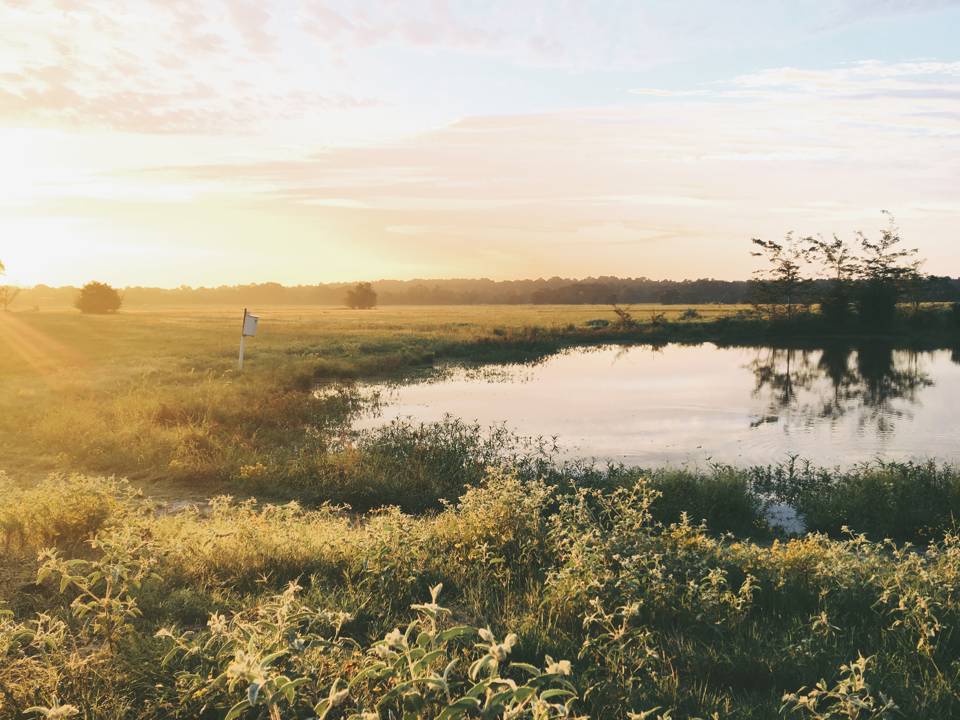

Landowner Loop: tending the soil first
August 3, 2020
Conservation biology and land management are research cornerstones at NRI, and we're fortunate to be able to build sound-science resources for private and public entities across the U.S. But it's no surprise when working lands comprise more than 82% of Texas's land area that our largest end-users are landowners and stewards, working heuristically to solve natural resource challenges.
We do know that thorough conservation is more than applied science and collaboration; it requires the stewardship of discovery and the constant observational loop, if you will, where we go back to the space of application and learn the sequence of science. So, instead of a Private Land Stewardship vignette or a publication to aid in your efforts today, we're learning from landowners in our continued series called "Landowner Loop", where we keep tools in the field and feedback loops open.
Community of practice
The Ranch Management University is an intensive 4-day event that targets new or inexperienced ranchers and landowners. It is produced and taught by Texas A&M University and Texas A&M AgriLife Extension Faculty where you can learn more about:
- the fundamentals of soils and soil fertility, forage establishment, pasture management, and utilization by livestock
- sampling soils and determining appropriate fertilizer application rates
- basic livestock selection and management practices such as castrating, vaccinating, and de-horning calves
- grazing management, stocking rate, and body condition scoring
- developing a business and marketing plan and how to maintain appropriate records for your ranching operation
- wildlife management topics such as managing white-tailed deer, turkey, quail, feral hogs, and farm ponds
When you come together, whether it's across a table or over WiFi these days, the real value is in learning from other backgrounds and experiences. You walk away from RMU with more than a notebook under your arm, but with a community of other stewards who are working towards the same goal. Luckily, you have an opportunity to stay connected and analyze the methods you can apply for a more efficiently-run ranch.
One piece of feedback from a rancher in Bandera who answered our survey caught our eye this last week, showing us that the days of teaching pay off in dividends and that our work to be available as experts to our community is why we're here.
1: Do you believe you realized an economic benefit from attending the workshop?
Yes. The land is key. We learned how to do a lot on our own to save cost since much was going to the care, water and feeding of animals. Learning about the land and soil was most beneficial because we learned how to tend to the soil first, the rest and savings would come after.
Whether you're new to the land or have ranched for generations, continued education can't be understated, and we're glad this rancher shared their story with us because we think this may sound familiar to so many others.
In the summer of 2018, we came to Bandera, to a totally different land, town, people and cows. During Christmas 2018, I went online and saw the series being offered for April 2019, so I woke up early the first morning of registration in January and waited until the online system allowed sign up.
Best thing I have done in years! I enjoyed the entire week! Each speaker and day was a wealth of enlightenment. I realized I knew more than I gave myself credit so I wrapped the old and new information into what I was going to do with this piece of land. Before, I just moved forward. Here in Bandera, I realized your series would give me the confidence to select what direction I wanted to go.
We're grateful to connect with our community and to have been able to reach back out to this rancher to continue providing support through guidance and further connections. They say landownership is hard work from before the sun comes up and well after it goes down, but the spoils are the ability to experience your own sunrises and sunsets in between.
Learn More
Private Land Stewardship Academies
Training land stewardship professionals working with private landowners and educating a community of practice on the importance of science-based conservation. Click Learn More for free access to resources.








